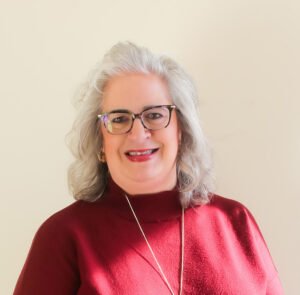Executive director discusses the 75th anniversary of Prevention Network and talks about its mission to prevent addictions and address substance abuse
By Mary Beth Roach
 Q: What is the mission of the Prevention Network?
Q: What is the mission of the Prevention Network?
A: The mission is to provide support, services and opportunities to our community through implementing and supporting strategies that promote healthy choices that prevent addictions and address related concerns.
Q: What are the specific programs you offer?
A: We have services under three primary buckets. Our largest is our primary prevention services, which is what people would most likely consider typical prevention services we offer individuals, and prevention education on substance-related topics.
We also offer parenting courses to individuals who either are mandated or who just need a little extra support in the parenting arena, maybe because they have a substance-use disorder or possibly because their substance use is related to some challenges that they’re facing in that area.
We also educate the community. We do a lot of what we call health promotion events, where we table and provide resources and information on current drug trends, what’s being seen in the community, signs and symptoms of potential substance use and provide that information for people who might be concerned that they don’t understand a substance or that their loved one might be experiencing a challenge with it.
A newer area of primary prevention is environmental prevention, where we work more within the community, bringing people together to address the environment in which people live and how they’re exposed to substance use. Organizations will band together to create policies or messages around how to have safer use of substances or how to protect substances, so they don’t get diverted to children or others.
Another bucket of service is family support. Navigators are charged specifically with working with families who have a loved one who is experiencing a substance-use disorder. Often in the treatment cycle, the families are neglected. There’s not an understanding on their part necessarily of why their loved one continues to use even though they know it’s bad for them, of the connection to mental health or how they get services for themselves. There are services that our family navigators can offer.
And then we are the home to the Central Region Prevention Resource Center, which is a separate initiative that the New York State Office of Addiction Services and Supports funds to provide a team of community development specialists working in a 13-county central region to form and support coalitions who might be working on substance use and related topics.
A lot of communities, since the opioid epidemic, have formed county drug task forces or a school or community group might come together to address youth substance use. Our prevention resource center can provide the technical assistance and training to help those groups address their goals and move through possible funding.
Q: How has the legalization of cannabis impacted your work?
A: Anytime a substance gets more attention, it brings a lot more questions to us as an organization. It’s been a challenge for a lot of parents as to how to have conversations with their young family members about a substance that used to be illegal and now it isn’t. They need to address it the same way they address alcohol. It’s still for adult use only, not for teens. But I think the main thing is that a lot more people are reaching out to get more information. We provide a lot of education around cannabis and the different forms being offered for adult use, the potency and what that means.
Q: As your agency marks its 75th anniversary, what changes have you and your team seen?
A: Because we’ve had our 75th anniversary, we actually dug through a lot of old historical documents for the organization. The organization’s official name is the Onondaga Council on Alcoholism and Addictions. So, the agency started out primarily focusing on alcohol and alcoholism and that was a focus for a long time. From what I can gather from the historical documents, somewhere in the late ‘80s, they added the business name of Prevention Network. In the last decade a huge focus has been on opioids and availability of that in the community. In Syracuse, we still have a high concentration of individuals who are using what’s called synthetic marijuana or “spike.”
Our knowledge needs to broaden and expand to understand the new substances that are available and make sure that we’re providing the up-to-date information. A lot of these things aren’t new; it’s just new to how it’s being used.
Q: What do you see moving forward for your organization?
A: I like to think that through the different programs that we’ve offered over the years, one of our strong areas is providing education and training. We’d like to get back to providing some community-based education for professionals and the community.
Stigma has such a huge impact. There’s so much stigma that it’s some kind of a moral failing or that you should just be able to stop what you’re doing. So many people still don’t reach out and get the help they need because they’re concerned about the stigma associated with it. We try to do education around that.
How is this any different than the other health concern that somebody has? Individuals that are suffering should be treated the same way as those who are experiencing other health-related concerns.
Q: Is there anything you’d like to add?
A: I did some research when we were getting ready to celebrate the 75th anniversary. As a not-for-profit, that’s pretty monumental. A lot of not-for-profits fold by year 6. The fact that this organization has been around for 75 years is a testament to the need and the type of people who we have working at the organization. They’re all very compassionate, dedicated people who want to help.

